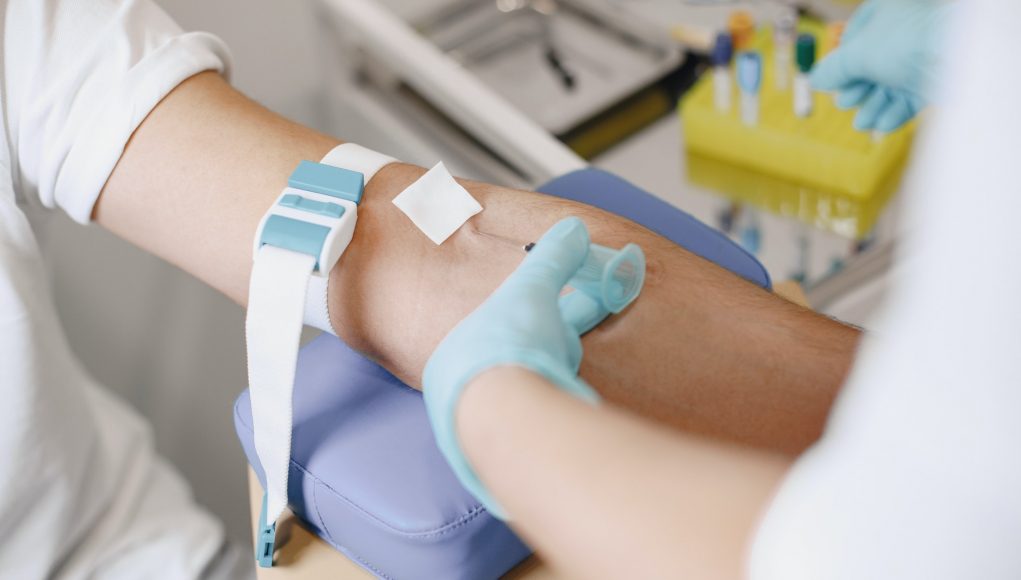So you want to be a phlebotomist? It’s a great career choice, but it’s not always easy to become one. There are many different ways to become a phlebotomist, and many of them do not require a college degree. Some programs may be more forgiving of criminal records than others, but it is important to do your research before applying.
Some organizations can help you with the process of becoming a phlebotomist, and they may be able to provide resources and support. Overall, it is important to stay positive and remember that you have options even if you have a criminal record.
Table of Contents
What is a phlebotomist?
A phlebotomist is someone who draws blood from patients for medical tests, transfusions, or donations. Phlebotomists are trained to choose the correct size and type of needle and tube to draw the required amount of blood. They also know how to calm patients who may be nervous or anxious about having their blood drawn.
What is the process for becoming a phlebotomist?
There are many different ways to become a phlebotomist, but most involve completing a training program. Some programs may be more forgiving of criminal records than others, but it is important to do your research before applying. Some organizations can help you with the process of becoming a phlebotomist, and they may be able to provide resources and support.
Can you become a phlebotomist with a criminal record?
Yes, you can become a phlebotomist with a criminal record. However, your criminal record may make it more difficult to get accepted into a training program or to find a job after completing a training program. Some organizations can help you with the process of becoming a phlebotomist, and they may be able to provide resources and support.
How do criminal records affect your ability to become a phlebotomist?
A criminal record may make it more difficult to get accepted into a training program or to find a job after completing a training program. However, some organizations can help you with the process of becoming a phlebotomist, and they may be able to provide resources and support.
What are some of the challenges you may face as a phlebotomist with a criminal record?
Some of the challenges you may face as a phlebotomist with a criminal record include:
– having difficulty getting accepted into a training program
– having difficulty finding a job after completing a training program
– faced with discrimination or prejudice from colleagues or patients
Are there any programs or organizations that can help you become a phlebotomist with a criminal record?
Yes, some programs and organizations can help you become a phlebotomist with a criminal record. Some of these programs and organizations include:
– The Phlebotomy Training Program at the University of Cincinnati
– Goodwill Industries
– The Salvation Army
What are some things you can do to improve your chances of becoming a phlebotomist with a criminal record?

Some things you can do to improve your chances of becoming a phlebotomist with a criminal record include:
Doing your research
Make sure you understand the requirements of the training program you’re interested in and what the admissions process is like. You should also research the job market in your area and find out what employers are looking for.
Applying to multiple programs
Don’t just apply to one program and hope for the best. Apply to multiple programs to improve your chances of getting accepted.
Getting experience
If you can, try to get some experience in the medical field. This will show employers that you’re serious about becoming a phlebotomist and that you have the necessary skills.
Working with an organization
Some organizations can help you with the process of becoming a phlebotomist, and they may be able to provide resources and support. Working with one of these organizations can improve your chances of becoming a phlebotomist.
What should you do if you’re facing discrimination or prejudice as a phlebotomist with a criminal record?
If you’re facing discrimination or prejudice as a phlebotomist with a criminal record, you should:
Stand up for yourself
Don’t let anyone treat you unfairly or make you feel like you’re not good enough.
Seek out support
Some organizations can help you with the process of becoming a phlebotomist, and they may be able to provide resources and support. Seeking out this kind of support can help you deal with discrimination and prejudice.
File a complaint
If you feel like you’re being treated unfairly, you can file a complaint with the Equal Employment Opportunity Commission.
Conclusion
It is possible to become a phlebotomist with a criminal record. There are many different ways to become a phlebotomist, and many of them do not require a college degree. Some programs may be more forgiving of criminal records than others, but it is important to do your research before applying. Some organizations can help you with the process of becoming a phlebotomist, and they may be able to provide resources and support. Overall, it is important to stay positive and remember that you have options even if you have a criminal record.
If you’re a felon considering becoming a phlebotomist, please share your experience in the comments. We’d love to hear from you! You can also read our other articles about felon rehabilitation and how to overcome discrimination.

































I am am based in South Africa and I have a shoplifting record and I want to be a phlebotomy